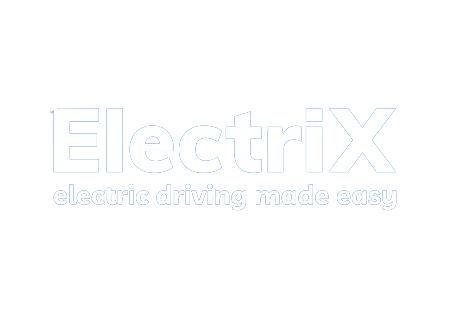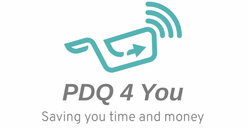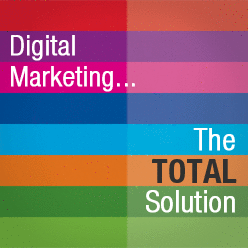In case you missed it see what’s in this section
Let's Talk
Owning Your Digital Identity: How Blockchain Can Empower You
In our increasingly digital world, where in-person interactions are no longer the norm, we create a unique trail of ourselves online. This "digital footprint" encompasses our social media profiles, financial accounts, and every digital interaction we have. Yet, the control over this data often resides with our platforms and services, raising concerns about privacy, security, and ownership.
This is where blockchain technology emerges as a potential game-changer. Blockchain, the distributed ledger system underpinning cryptocurrencies, offers a unique framework for managing digital identities and conducting transactions.
For example, using crypto exchanges like CEX.IO, you can now seamlessly buy Tether or any other supported cryptocurrency and enjoy a broader range of financial products and services.
By decentralizing identity management, blockchain can empower individuals to take control of their personal information, fostering a more secure and transparent digital ecosystem.
The Problem: A Fragmented Identity Landscape
Our current digital identity system is fragmented and centralized. We rely on a multitude of platforms to store and manage our credentials – social media logins, email accounts, and online banking portals. This fragmented approach creates several challenges:
- Lack of Control: When we sign up for these services, we often relinquish control over our data. Platforms dictate how our information is used and shared, raising privacy concerns.
- Vulnerability to Breaches: Nowadays, centralized data storage is a prime target for hackers. Data breaches can expose sensitive information, leading to identity theft and financial losses.
- Inefficiency and Friction: Verifying identities across different platforms can be cumbersome and time-consuming. Each platform has its own verification process, leading to a lack of interoperability.
Blockchain: A Foundation for Self-Sovereign Identity
Blockchain offers a novel approach to digital identity management by introducing the concept of Self-Sovereign Identity (SSI). In an SSI model, individuals control their identities through a digital wallet.
This wallet stores identity attributes like name, date of birth, or educational qualifications, along with cryptographic keys that grant access and control over the data.
Here's how blockchain empowers individuals in an SSI model:
- Decentralized Storage: Identity data is not stored on a single server but distributed across a network of computers on the blockchain. This makes it potentially tamper-proof and can significantly reduce the risk of data breaches.
- User-Controlled Access: Individuals determine what information to share and with whom. They can grant access to specific attributes through their digital wallet, ensuring granular control over their data.
- Improved Security: Blockchain uses cryptography to secure identity data. Cryptographic keys ensure that only authorized individuals can access and modify information.
- Streamlined Verification: Verifiable Credentials (VCs) issued on the blockchain can be used to prove one's identity or qualifications. VCs are tamper-proof and can be easily verified by any relying party, streamlining identity verification processes.
Benefits of Blockchain-based Digital Identity
A blockchain-based digital identity system offers a multitude of benefits for individuals and society at large:
- Reduced Risk of Fraud: The tamper-proof nature of blockchain makes it harder for fraudulent identities to be created or used, leading to a more secure digital ecosystem.
- Simplified Transactions: Verifiable credentials on the blockchain can streamline identity verification processes across different platforms, reducing friction in online interactions.
- Empowerment for the Unbanked: Blockchain can provide secure and verifiable identities for those who lack access to traditional identification systems, facilitating financial inclusion.
- Innovation and New Applications: A decentralized identity framework can unlock new possibilities for data ownership and control, paving the way for innovative applications in healthcare, education, and voting.
Challenges and Considerations
While blockchain offers a promising vision for digital identity, there are challenges to consider:
- Scalability: Blockchain networks can become congested as users increase, potentially impacting transaction speed and fees.
- Standardization: The lack of standardized protocols for SSI can hinder interoperability between different blockchain platforms.
- Regulation: Regulatory frameworks for blockchain-based identity are still evolving. Clear rules are needed to ensure compliance and consumer protection.
- User Adoption: Widespread adoption of SSI requires educating users about blockchain technology's benefits and technical aspects.
The Road Ahead: A Future of Self-Sovereign Identity
The development of blockchain-based digital identity is still in its early stages. However, ongoing research and pilot projects are paving the way for a future where individuals own and control their digital identities. Governments, businesses, and technology companies are collaborating to develop standards and frameworks for SSI.
As the technology continues to develop and user adoption grows, we can expect to see a more expressed shift towards a more decentralized and user-centric identity management system. This could empower individuals to navigate the digital world with greater confidence, control, and security.
Empowering the Future: Taking Ownership
The potential impact of blockchain-based digital identity extends far beyond individual empowerment. It can reshape entire industries and redefine how we interact online.
- Transforming Industries: In sectors like healthcare, secure and verifiable medical records stored on the blockchain can improve patient care and streamline data sharing between providers. Similarly, blockchain identities can facilitate safe and efficient cross-border transactions in finance.
- Building Trust in the Digital World: By fostering transparency and accountability, blockchain can rebuild trust in online interactions. This can create a more secure and collaborative online environment for businesses and consumers.
- A More Inclusive Digital Ecosystem: Blockchain-based identity can empower individuals who lack access to traditional identification systems, fostering greater financial inclusion and access to online services.
The Road to Realization
The transition to a blockchain-based digital identity system will require a collaborative effort. Governments, technology companies, and individuals all have a role to play:
- Governments must establish clear regulatory frameworks that promote innovation while safeguarding user privacy and security.
- Technology companies must develop user-friendly and interoperable digital wallet solutions that empower individuals to manage their identities seamlessly.
- Individuals need to be educated about blockchain-based identity's benefits and potential risks.
Conclusion
Owning your digital identity is no longer a utopian dream. Blockchain technology presents a unique opportunity to empower individuals and build a more secure, transparent, and inclusive digital future.
As we move forward, collaboration and innovation could be crucial to unlocking the full potential of blockchain-based digital identity and shaping a more user-centric online world.
Weather in Manchester
Listings









